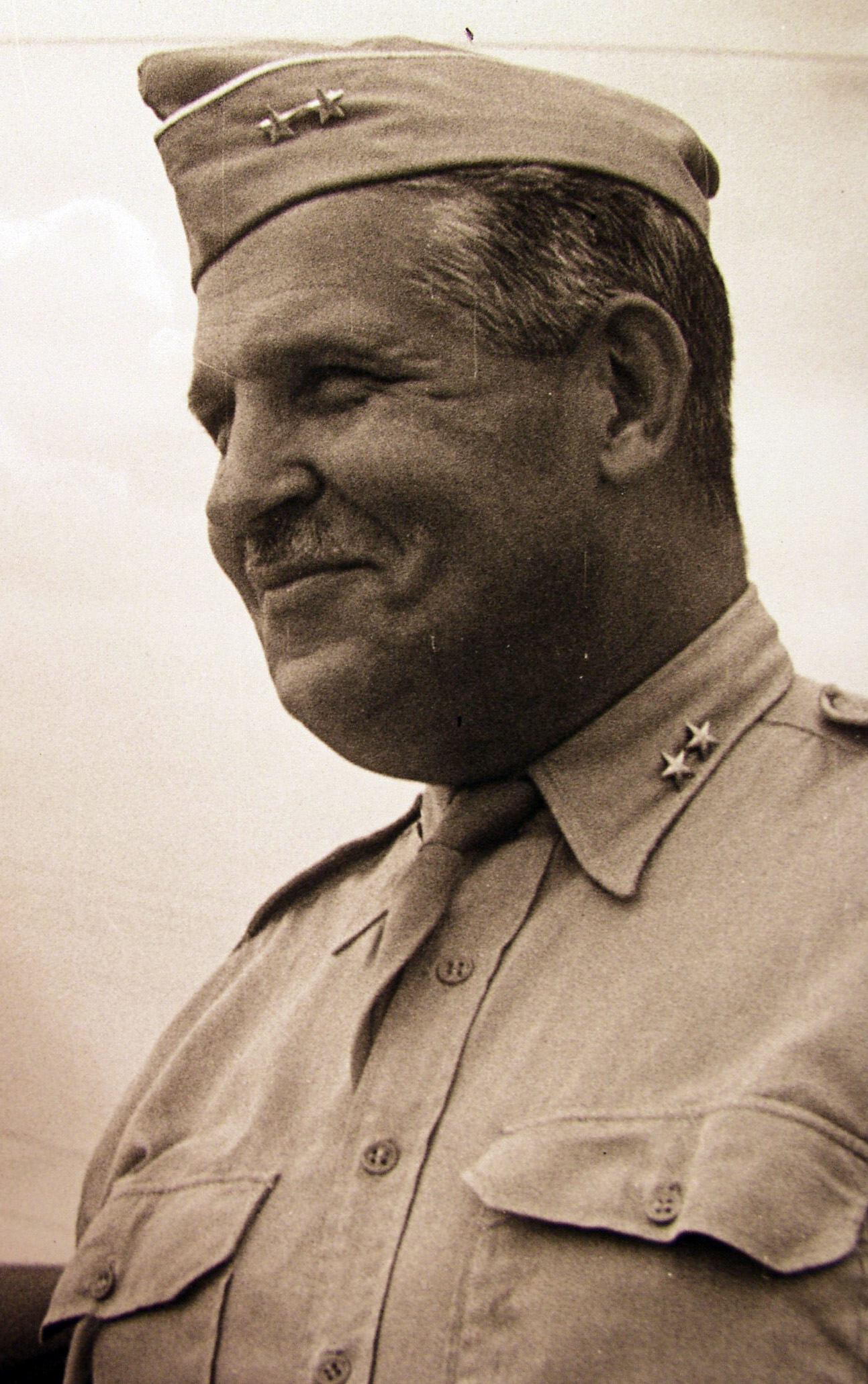On September 17, 1942, Colonel Leslie R. Groves was appointed Director of the Manhattan Engineer District, the secret project to build the world’s first atomic bomb. As Project director, Groves oversaw all of the project’s phases, including scientific, technical and process development; construction; security and military intelligence of enemy activities; and planning for use of the bomb.
A West Point graduate, Groves had risen to the rank of Colonel in the United States Army Corps of Engineers after a successful career in the Quartermaster Corps. Prior to his assignment, Groves was in charge of all domestic Army construction during the mobilization period for World War II, including the massive Pentagon, which was completed in less than a year and a half. By September 1942, his proven record of managing complex undertakings made him a logical choice to lead the Manhattan Project.
Groves’ impressive credentials and strong administrative abilities soon caught the attention of his superiors, including Lieutenant General Brehon Somervell, Assistant Chief of Staff, G-4 in the War Department. “He wanted somebody who could drive this thing ahead,” recalled Groves, “He knew I could do that, by actually having done it on the construction program. He probably thought that I could do it better than anybody else that he knew of, other than himself.”
The cost and uncertainty of developing an atomic bomb in time to end the war was also the cause for much concern. “If anything went wrong with this thing, and there is every reason to believe that eventually it might, and it would be a complete flop,” recalled Groves, “Somervell wanted somebody who could deal with Congress and who could stand up…and give an impression to them that you know exactly what you are talking about and that you are as big a man or bigger than they are.”
Groves’ driving energy and ability to make difficult decisions made him the ideal candidate to lead the Manhattan Project. “He’s what they call a ‘take-charge guy’,” recalled Colonel James C. Marshall, who oversaw the formation of the Manhattan Engineer District before Groves took over. “He had a reputation for getting things done.” Not many could keep up with Groves’ incredible work ethic: “He was a driver, and his physical stamina was such that he could work twenty-four hours a stretch.”
Groves’ brusque demeanor and determination to succeed at all costs did have its drawbacks, however, especially when it came to working with others. “Whatever was his object or his aim, he went after it to attain it,” recalled Groves’ wife, Grace. “He didn’t care who he had to step on to get there.”
Groves has been called many things: demanding, critical, mean, egotistical, abrasive, an S.O.B. But when it came to getting the job done, he always followed through. And that, admitted Lauchlin Currie, a chemical engineer who worked closely with Groves, was what mattered the most: “They had to have a man like Groves. A fellow that was too kind, too easygoing, maybe too polite would have never have gotten it done in time. We were lucky that we had Groves.”
Check out some photographs of the General here!





